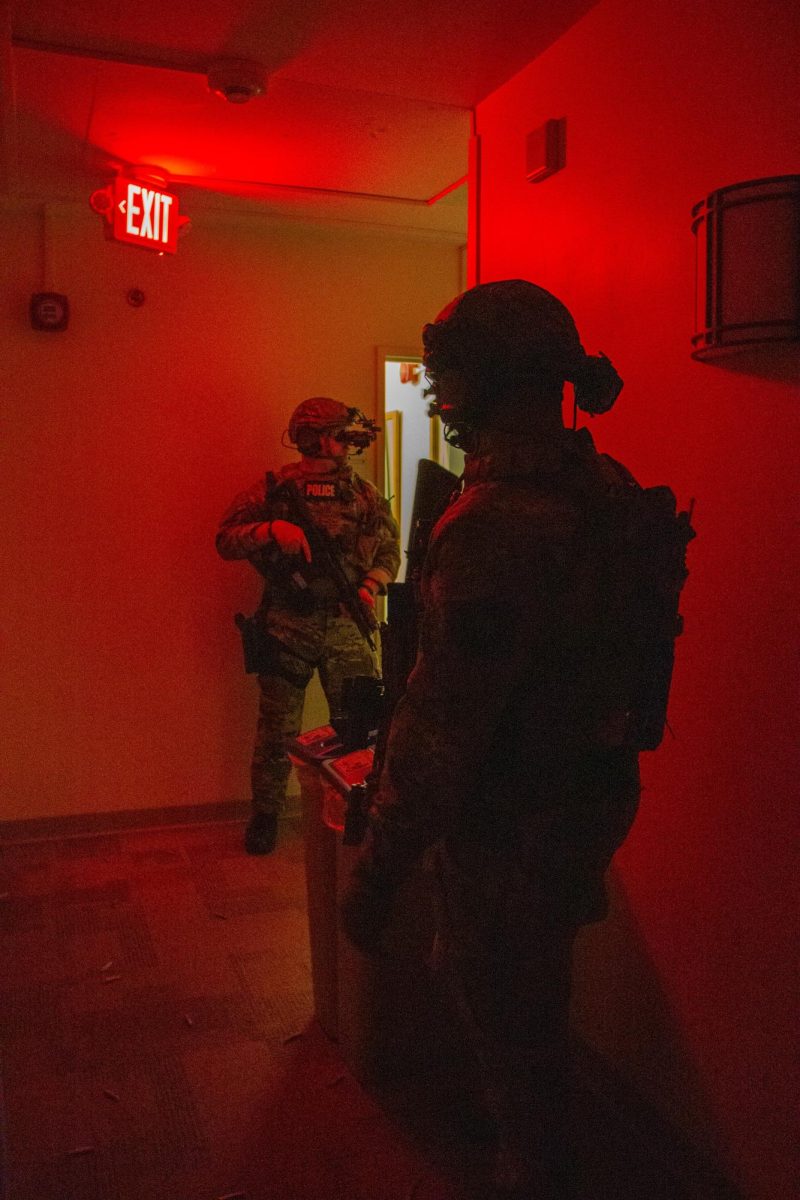Sophomore Zeke Ouellette (ZO) interviews Karen Grimmer (KG), Principia’s Vice-President of Administration, on her mission to use her task team to change how the Pub works.
“Why is my food taking so long to be made?” Almost every Principia student has at one time uttered or simply pondered this phrase when waiting for food at the school’s Piasa Pub. But Karen Grimmer, Principia’s Vice President of Administration, wants to improve the pub so that no student need think that again. As the capstone project for her Master’s degree in business management, Grimmer is leading a research group to explore and identify ways to improve the Pub’s service and customer satisfaction. She recently sat down with The Pilot to spread awareness of what is “cooking up” at the pub.
ZO: For those of us who are unfamiliar, give us some background about this project.
KG: All this fall I am working on my capstone, which is called an action research project. This means I am looking at an issue in my work environment that needs attention and performing research on it with my my team—which is made up of Mary Odhiambo and Sherry Kinkel—to implement some practical steps in finding a solution. [Our] purpose is not to overhaul the Pub. The scope of my research is to look at customer satisfaction and see if there is a relationship between that and speed of service.
ZO: What are some of the problems your team is addressing specifically?
KG: What we are trying to communicate at this point is the data that we collect from the pagers, which captures how long each order took. What it doesn’t capture is what the person ordered. For example, a pizza takes eleven and a half minutes to cook in the oven. If our goal is to serve everyone in under seven minutes, it is never going to happen with a pizza. So we are exploring what that really means by asking if we should shift what our idea of quick service is.
ZO: What strategies have you created in response to the data collected?
KG: At this point, we have identified three basic areas of strategy. One is to improve the workspace and facilitate more efficient service. The second strategy has to do with customer information. Then the third has to do with training and development. These are the general broad areas that we can look at, and now we are coming up with strategies. Over the next eight to ten weeks, they will be employing those strategies; looking at the data and determining if it has made time or made a positive difference in customer satisfaction.
ZO: Should students expect to see visible changes at the pub?
KG: Some ideas at this point entail getting rid of the two big freezer units at the end of the grill and instead use refrigerator or freezer bins that run under the counters. That would add five more feet where we could add another fryer and extend the grill top. Another [idea] might be to train student cashiers to let people know how long their orders will take before they walk away from the counter. That way, students are satisfied because they aren’t wondering why their food is taking so long. We want students to have a sense of satisfaction with their experience at the Pub.
ZO: Assuming these changes take place, how should students expect to be influenced?
KG: I think Pub customers, where they are students or staff, will have learned more about what goes on in fulfilling their order[s] and the end result [is that they] will be more empathetic and satisfied with their experience. One of the things this may entail is restructuring the menu so that it is laid out more clearly; maybe indicating the wait times on some of the longer-to-prepare orders. And we are looking at the impact of customization on orders and whether we are small enough as an operation to customize orders… or whether that is counterproductive.
ZO: A couple years down the road, what position do you see the Pub being in?
KG: I’m not trying to accomplish an ideal pub scenario. I am trying to help overcome this sense that service in the Pub is so slow. I went into this thinking that the Pub is [extremely] slow. [Once] I was going in to get three smoothies before I had a meeting, and it took 25 minutes to make those smoothies. That influenced my view of the Pub and I think a lot of other people have [had that experience]. But I found out that there is a reason behind these things happening. And once I started learning just how much it takes to make these food items, it started changing my entire perception. So my ultimate [goals are] that we will improve speed of service where it is appropriate, help educate the community, and create a more satisfying experience.


